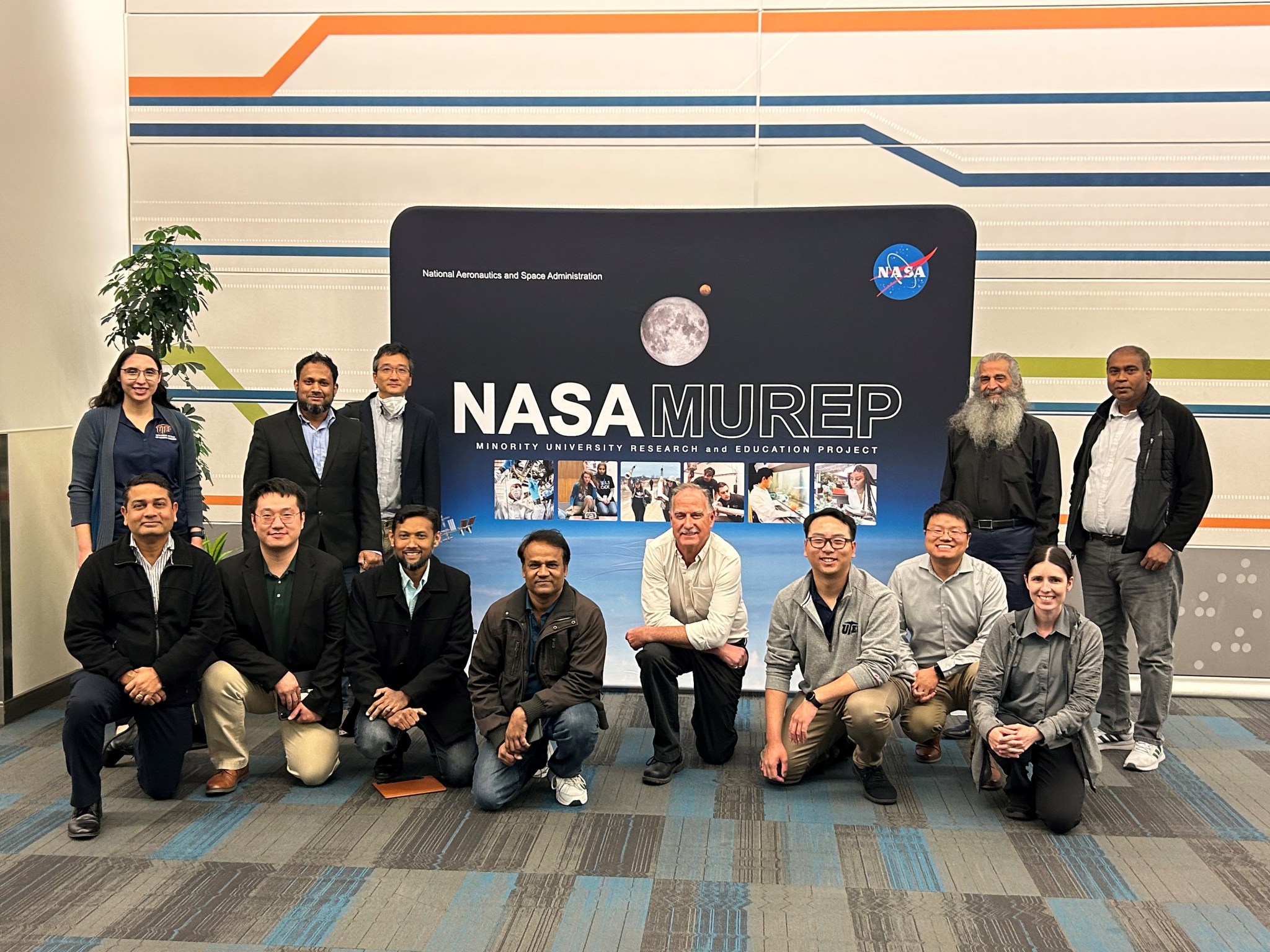NASA Awards Support STEM
Research at Minority Serving Institutions
JUL 01, 2024 RELEASE 24-091 A photo of MPLAN principal investigator awardees from various minority-serving institutions at the 2023 NASA Better Together conference
in San Jose, California. Credits: NASA
NASA has selected 23 minority-serving institutions to receive $1.2 million to grow their research and technology capabilities, collaborate on research projects, and contribute to the
agency’s missions for the benefit of humanity.
Through NASA’s Minority University Research and Education Project (MUREP) Partnership Learning Annual Notification (MPLAN) award, selected institutions will receive up to $50,000 each
for a six-month period to work directly on STEM projects with subject matter experts in NASA’s mission directorates.
“As NASA looks to inspire the next generation, the Artemis Generation, we are intentional in increasing access for all,” said Shahra Lambert, NASA senior advisor for engagement and
equity. “It’s a daring task to return to the Moon then venture to Mars, but NASA is known to make the impossible possible. By funding partnerships such as MPLAN, and tapping into all pools of STEM resources, including MSIs, we are ensuring the future of our
missions are in good hands.”
The awards will contribute to research opportunities in preparation for larger funding programs such as NASA’s annual Small Business Innovation Research/Small Business Technology Transfer
solicitation, the Space Technology Research Grant Program within the agency’s Space Technology Mission Directorate, the University Leadership Initiative within the Aeronautics Research Mission Directorate, and the Human
Research Program within NASA’s Space Operations Mission Directorate.
“These awards will help unlock the full potential of students traditionally underrepresented in science, technology, engineering, and mathematics research and careers,” said Torry Johnson,
deputy associate administrator of STEM Engagement Projects at NASA Headquarters in Washington. “Through this award, universities receive support, resources, and guidance directly from NASA experts, which can be a game changer for the work they do to develop
technological innovations that contribute to NASA missions and benefit all of humanity.”
The awardees are as follows:
Drones for Contact-inclusive Planetary Exploration
Bioinspired Surface Design for Thermal Extremes
Human-Centric Digital Twins in NASA Space Missions
Repurposing Lander Parts into Geodesic Assemblies
Crafting Biofuels via Molecular Insights
Polyethylene Glycol Diacrylate for Seed Growth: Microgreens in Space
Freshmen Access to CubeSat Education
New Tech for Storm Tracking with Machine Learning
Sustained Approach for Energetic Lunar Operation
Information-Theoretic Multi-Robot Exploration
Robot Leg Design for Lunar Exploration
Extreme Aerodynamics Over Small Air Vehicles
Enhanced Aero-Composites: Reinforcement Innovation
Early Non-invasive Diagnosis of Heart Diseases
Designing Resilient Battery System for Space
X-Ray 3D Printing of Nanocomposites for AME
Plant Antimicrobial in Space Exploration using AI
Non-contact Optical Sensor for Biomedicine
Soft Tendril-inspired Robot for Space Exploration
Hydrodynamic Stability of Jets via Neural Networks
Low-SWaP Water Electrolyzer for Lunar/Martian In-Situ Resource Utilization
Tuneable NanoEnergetic Microthruster Cartridges
Flexible Modular Robots for Extreme Access
Ultrasound methods for monitoring carcinogenesis
All-climate and Ultrafast Aluminum Ion Batteries
The awarded institutions and their partners are invited to meet with NASA researchers and MUREP representatives throughout the remainder of 2024. The meetings serve as training sessions
to pursue future NASA opportunities. These trainings focus primarily on fostering collaboration, enhancing technical skills, and providing insights into NASA’s research priorities to better prepare participants for future opportunities.
To learn more about MPLAN, visit:
-end- |

